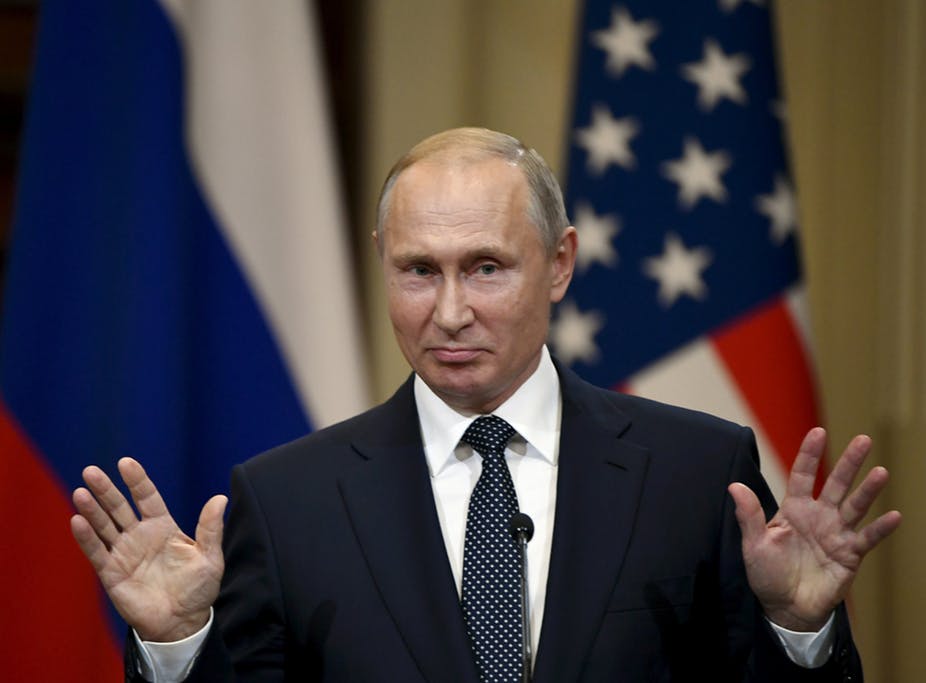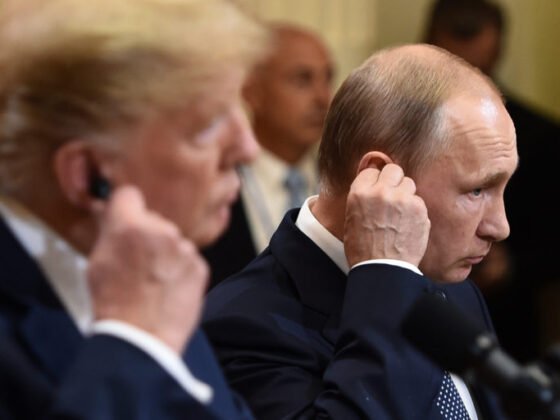(The Conversation) After U.S. President Donald Trump’s unprecedented performance at a press conferencewith Vladimir Putin at the Helsinki Summit on July 16, Trump was criticized across the political spectrum for apparently siding with Putin rather than the U.S. intelligence community about Russian interference in the 2016 election.
Multiple Republican senators also took direct aim at Putin, calling him a “committed adversary,” a “tyrant” and a “mafia regime leader.”
According to some Russian observers, Putin relishes his international image as “a Bond villain.” But as Joss Whedon, the creator of the cult classic TV show Buffy the Vampire Slayer once remarked, “Bad guys don’t think that they’re bad guys, bad guys think that they’re heroes.”
This wisdom applies equally to Putin: He doesn’t think he’s the bad guy, he thinks he’s the hero. He’s not the supervillain Blofeld from the James Bond series, he’s Bond.
Widely depicted in the United States as a hostile leader who aggressively challenges American interests around the world, Putin, not surprisingly, sees things quite differently. From Putin’s point of view, Russia is playing defense.
As I argue in my new book “The Code of Putinism,” the key to understanding what Vladimir Putin is up to is to understand his ideas, habits and emotions. Current poor relations between Russia and the West are due to a fundamental mismatch in outlooks between Putin and his close associates and most Western leaders. These starkly different mentalities, more than conflicting interests – although these exist as well – are the main source of today’s difficulties and the main barrier to better relations. […]
Read More © The Conversation










